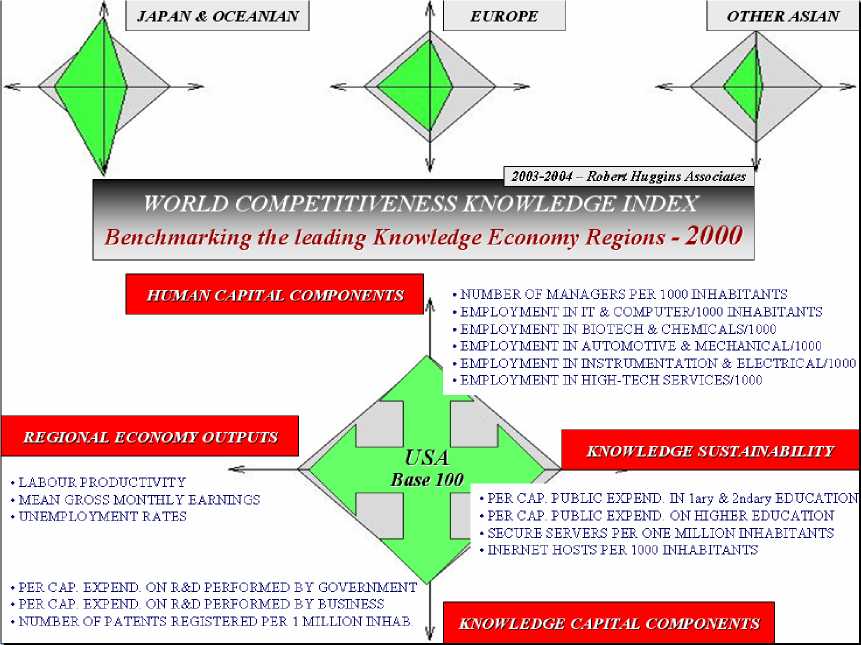Sustainability matrix cross-references the variations of the sustainability with its dimensions. The
cultural dimension is often weakly represented in most of the variations. In the analysed literature,
the focus of the discourse is on the alternative roles of ecological and economical dimensions,
sometimes with noticed implications of the social aspects.
Policies’ designs and results are reflected by indicators. An illustrative example is provided by the
following picture. An important measure of the economic performance, competitiveness is here
analysed in connection with knowledge. World competitiveness knowledge index is here used to
illustrate the situation of the knowledge economy regions. Main components of the index are
knowledge sustainability, knowledge capital, regional economy outputs and human capital.

Figure 2. World Competitiveness Knowledge Index (Rousseau 2005, p.4)
Incorporation of knowledge sustainability dimensions illustrates in a significant extent, the learning
capacity of a region or a state/country. Neglecting the particularities of the area, as well as focusing
on top-down approaches is hindering the facilitation of development and is a part of the NEGA
model of counter-development of a knowledge region. Projects and programmes of rural and
regional development have to put in practice regional and rural policies in a customised manner.
This paper is not examining in an exhaustive manner these policies, but it uses several examples
from Finland and Romania, with the purpose to raise further research questions. References to some
of the ongoing practices and tools are also included.
More intriguing information
1. DURABLE CONSUMPTION AS A STATUS GOOD: A STUDY OF NEOCLASSICAL CASES2. NVESTIGATING LEXICAL ACQUISITION PATTERNS: CONTEXT AND COGNITION
3. The name is absent
4. The name is absent
5. The name is absent
6. PACKAGING: A KEY ELEMENT IN ADDED VALUE
7. The name is absent
8. Special and Differential Treatment in the WTO Agricultural Negotiations
9. LAND-USE EVALUATION OF KOCAELI UNIVERSITY MAIN CAMPUS AREA
10. The name is absent